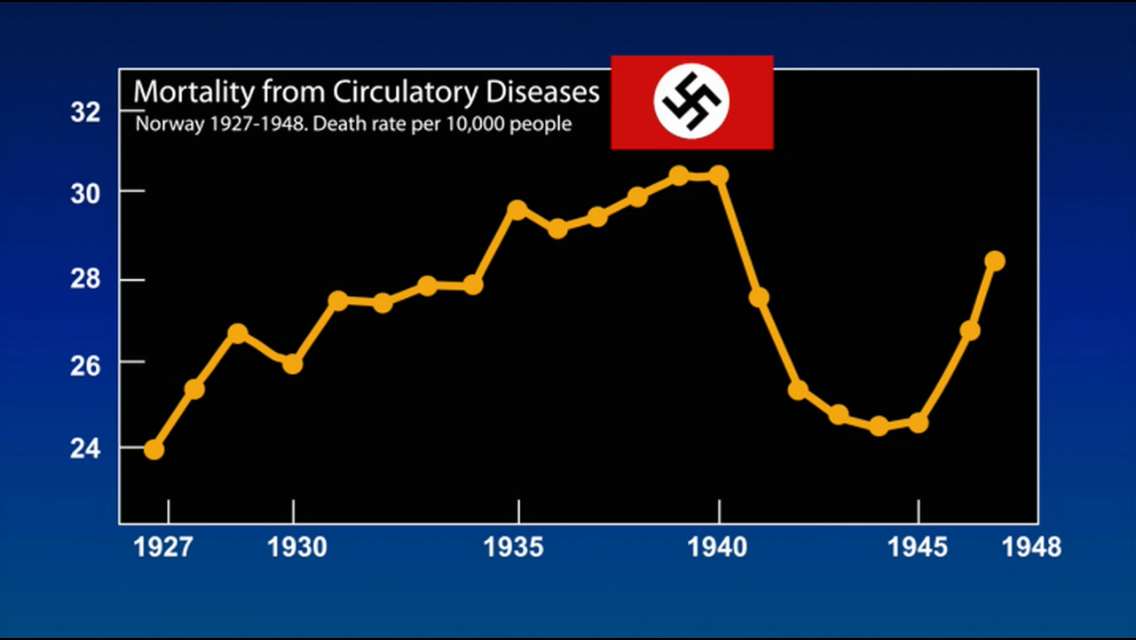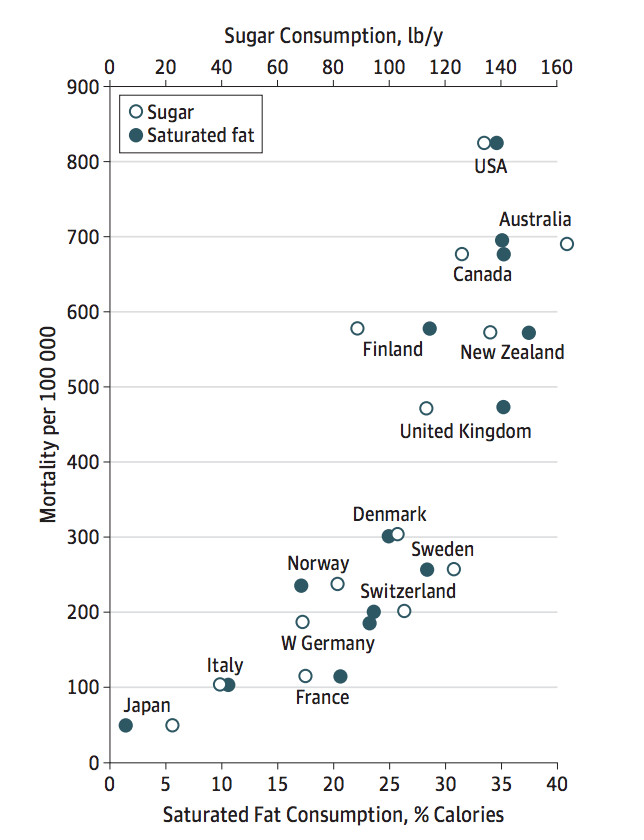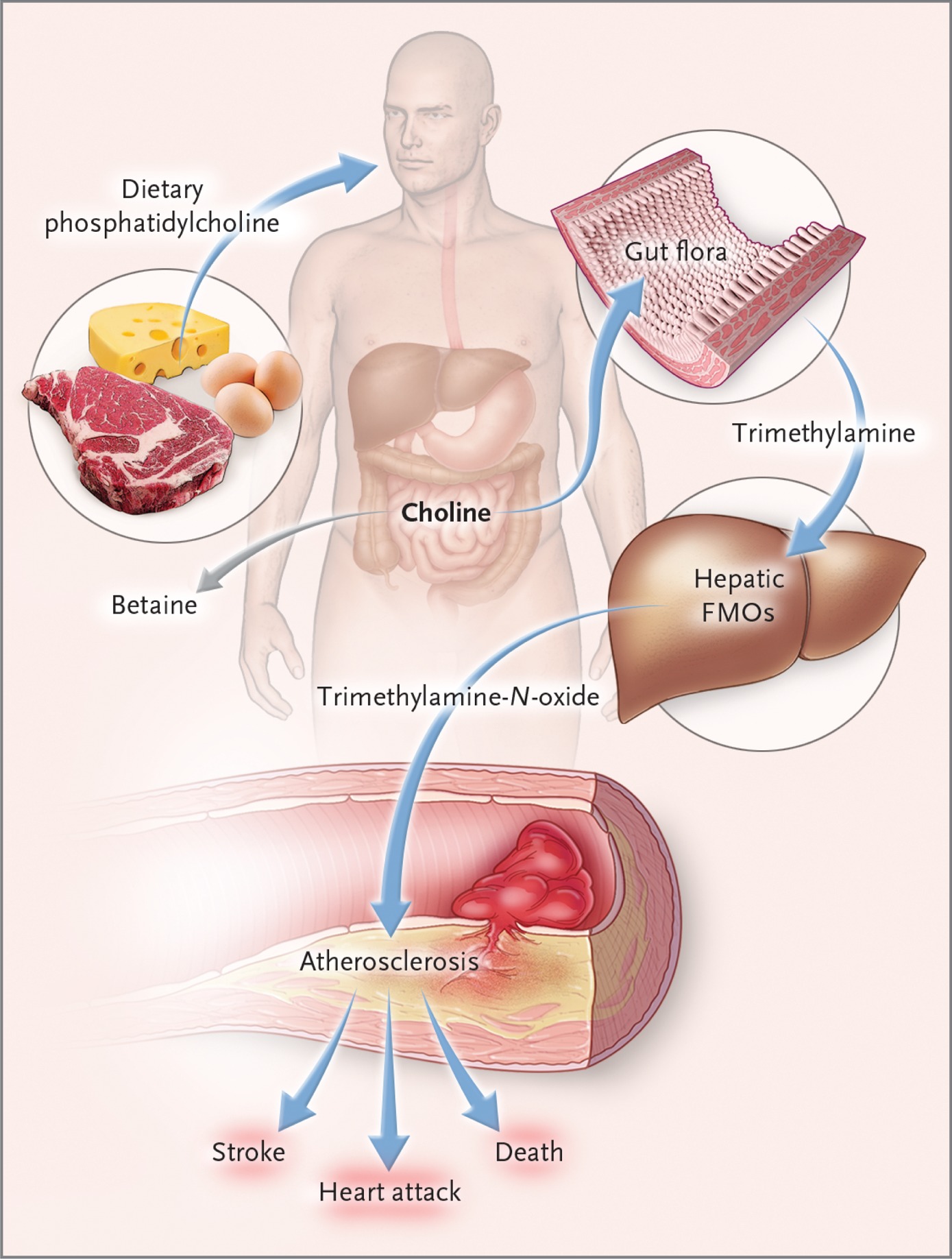
Yes, I went there! Uber popular fad Paleo diet as well as Whole30 have been going strong for years now. Those of you who have been following me for awhile may remember my post last year where I discussed reasons I do not promote the Paleo diet or Whole30. Today I am discussing this topic again and more in depth. I’m breaking it down into five categories to make it a little easier to understand for the average reader and dieter. In writing this, I am going to assume most of the readers are well versed in the Paleo and Whole30 (a stricter version of Paleo) protocols in effort to make an already long post shorter. These same five points also apply to the popular and incredibly dangerous Ketogenic diet. If there is enough interest I may also do a separate post on Ketogenic diets but basically all you need to know is that there is zero science saying there are any long term health benefits to Ketogenic diets (quite the opposite) unless you have refractory epilepsy (and even then there are negative side effects but the benefits outweigh the risks). We always need to be wary of any ‘lose weight quick’ or ‘get healthy quick’ schemes.
I’ll start off by saying that the original Paleolithic diet developed by Boyd Eaton in 1985 is very different from the understanding of “today’s” Paleo diet. One of his consistent conclusions was that our ancestors ate approximately 100 grams of fiber daily (spoiler alert – meat contains zero fiber). To give you a point of reference the average American eats about 15 grams daily. Another big difference in his work is that he talks about eating only wild meat. The meat available today is very different from the meat in the Paleolithic age. Let’s be real, cured bacon and hot dogs are not Paleolithic. Nor did they have freezers or refrigerators to keep meat from spoiling in the warmer weather. In other words, eating meat at every or nearly every meal would not have been an option.
I don’t want to make it sound like the modern Paleo (and Whole30) is the worst diet on the planet, by far it is not! It is light years better than the standard American diet. Eat more vegetables and fruit? I think we can all agree on that one! Cut out dairy? Please do if you want to lower your risk of prostate/breast cancer! Kick unhealthy sugar cravings and getting all the processed food out of the house? Absolutely! Change your emotional relationship with food and stop obsessing about weight and calories? Yes yes yes! However, it is far from the type of eating that is proven to promote vital, long, chronic disease free lives. Below are the main health concerns (based on a vast amount of science including the China Study and clinical trials) regarding diets with moderate to large amounts of animal products and low in beans, legumes and whole grains.
IGF-1 – It is scientifically proven that eating animal products increases your IGF-1 hormone (insulin-like growth factor 1) which in turn increases your risk of cancer. This is a hormone that we have a lot of when we are children, because it helps us grow! As we age, it naturally decreases which is healthy and normal. Elevated levels in adults have been shown to promote the growth, proliferation and spread of cancer cells. Based on research, doctors are recommending we eat 10% or less of calories from animal products (meat, eggs, dairy).
Saturated fat – Currently, 1 in 3 Americans die from heart disease. It is our NUMBER ONE killer and death is the first sign of CVD (cardiovascular disease) in two thirds of men and half of women. On average, one American dies every 40 seconds from CVD, that’s about 14 Americans dead by the time you finish reading this post. There is absolutely no question that saturated fat plays a role in CVD as does processed sugar since they both raise LDL cholesterol (bad cholesterol) levels. Where does saturated fat comes from? Animal products, all of them (except egg whites and honey), even grass-fed and organic. I like to refer to Dr. Kim Williams on this topic, President of the ACC (American College of Cardiology) and chief of the division of cardiology at Rush University Medical Center. He became a vegan in 2003 when he found out his LDL cholesterol (bad cholesterol) was 170 (should be less than 100) while eating a diet of what he thought to be healthy (chicken and fish and no red meat). After cutting out all animal products, his LDL cholesterol dropped to 90 in less than 6 weeks. His goal is to not retire until the leading cause of death in cardiologists is not heart disease. Digest that for a minute! He talks about one of the big misunderstandings of cholesterol diet research and that is the saturation of the cholesterol receptors. You can only absorb so much cholesterol. You make some in your liver, and you eat some but you can only absorb so much. So when someone who is already eating a lot of cholesterol is put on let’s say a 0-1 egg per day diet then a month later increased to 2 eggs daily, the blood results will not show much of a difference even though there is a huge difference in cholesterol consuming 0 eggs per day compared to 2 eggs per day. The blood cholesterol level plateaus at a certain point. If you had a healthy vegan doing the same experiment with eggs, there would be a very obvious jump in cholesterol since they are starting out with very low levels.
Some historical data that is worth mentioning is that in World War II the Germans occupied Norway and among the first things they did was confiscate all the livestock for their own troops. The Norwegians were forced to eat mainly plant based foods. If you look at the deaths from cardiovascular disease, as soon as the Germans came in 1939 the rates plummeted and then as soon as the war ended in 1945, the heart disease and stroke climbed right back up. We have never seen such a decrease in cardiovascular disease from statins, or stents or bypass surgery and it is such a powerful lesson but most everyone overlooks it.

Let’s take Bob Harper, personal trainer from The Biggest Loser, and from the outside, a picture of health. Before I had babies and had time to watch TV I loved watching him on the show. What he didn’t know was what was going on inside of his body. Last year, at the age of 51, he had a heart attack and went into full cardiac arrest while working out in a gym. He would have been dead if there weren’t defibrillators in the building. Since the heart attack, he has given up his high-protein Paleo diet and traded it for a much more plant based diet. He is promoting eating more whole grains and legumes with his new book which is so encouraging since we know that prolonged consumption of diets low in carbohydrates and high in protein is associated with an increase in total mortality.
The Paleo diet and Whole30 both eliminate processed sugar which plays an equal role in cardiovascular disease which is awesome! But it’s only half of the problem. Just take a look at the graph below published in the Journal of the American Medical Association comparing 14 countries and their consumption of saturated fat and added sugars in relationship to mortality from cardiovascular disease. They are neck in neck. We cannot demonize one and say the other is healthy just because we like to eat bacon.
If you are interested in where to get healthy fats, I’ve written a post about it.

Heme iron – Another serious concern regarding red and processed meats as it relates to heart disease and stroke is heme iron. The human body absorbs heme iron (found in animal foods) more readily than nonheme iron (found in plant foods). However, it can also promote free radical damage, called oxidative stress when excess is present. High body iron stores are associated with increased risk of chronic diseases that have an oxidative stress component (diabetes, heart disease, and dementia).
Heme iron promotes the oxidation of LDL cholesterol and oxidized LDL enters your arteries 9 times faster than non-oxidized LDL causing more damage and increasing risk of stroke. Several studies have found that higher heme iron (or red and processed meat) intake was associated with higher blood pressure, and higher nonheme iron intake (or plant food intake) was associated with lower blood pressure.
Phytic acid – If you are unfamiliar with phytic acid, it is a naturally occurring “preservative” if you will that can interfere with the absorption of nutrients during digestion. Many plants contain phytic acid such as beans, legumes, grains, nuts and seeds. For this reason, the Paleo diets says you cannot eat beans or grains. Contradictory to this rule, you are however, allowed to eat nuts on the Paleo diet which also contain phytic acid (huh?). I strongly disagree with the elimination of beans, legumes, whole grains and grain-like seeds (like quinoa) simply because of their phytic acid content and here’s why. Soaking beans, legumes, grains, seeds and nuts overnight in water sparks the sprouting process which neutralizes the phytic acid! Soaking/sprouting is an ancient practice, and only recently forgotten. So if we can solve the issue of phytic acid, why not enjoy the cancer fighting, blood sugar lowering, stroke reducing power of beans and legumes?
Fiber & the microbiome – A study published in the New England Journal of Medicine showed the biochemistry of the GI tract turns choline and carnitine (abundant in eggs and meat) into TMAO (trimethylamine oxide) then the liver turns that into trimethylamine-N-oxide which is a toxic substance for blood vessels. It increases heart attack, stroke and death by increasing plaque and making a blood clot form on top of the plaque. We also know that the gut microbiome (a community of bacteria) feeds off of fiber and since animal products have zero fiber, diets high in animal products are naturally low in fiber and breed unhealthful gut bacteria. Scientists and doctors are just recently beginning to understand how closely our gut health is related to every other aspect of our health. Justin Sonnenburg, PhD and author of The Good Gut refers to the gut as our body’s control panel. Our gut has more neurotransmitters than our brain and sends over 400 times the amount of messages to our brain than the brain sends to the body! Our gut microbiome produces vitamins, protects us against disease-causing microbes, promotes healthy immune function, facilitates energy extraction from food, and breaks down fiber and resistant starch into beneficial short chain fatty acids, which protects us against colon cancer.

I’m sure you’re wondering, as a health coach, do I eat meat or am I a crazy vegan? Well, most of my life I have eaten meat, including after my journey to health started more than a decade ago. However I recently (in the past 8 months) dropped meat all together and eat a whole foods plant based diet with a very small amount of wild fish and pastured eggs from our free-ranging chickens (yes we have chickens). Mostly for ethical reasons, since I was eating such small amounts of meat anyway before I made this change and my HDL and LDL cholesterol were great. However, I do believe we are constitutionally omnivorous and the majority of humans will not give up meat completely. Based on the vast amount of science pointing to plant-based diets as well as all the places in the world where this type of eating plays out in real life like the Blue Zones and the North Karelia Project, it would be wise for everyone to greatly reduce their intake of animal products and replace it with plant based proteins. I am not saying there is a one size fits all diet, but the people who live the longest, have the best health, and have the least chronic disease do not eat diets high in animal products.
I always find myself going back to Michael Pollan’s quote from his book Food Rules, “eat food, not too much, mostly plants”. It doesn’t have to be more complicated than that unless you make it. If you are eating mostly plants (vegetables, fruit, mushrooms, beans, whole grains, nuts and seeds), which are the most nutrient dense per calorie, then you can have a cocktail with a friend, a burger at a BBQ, or gelato on vacation, and it won’t make or break your health. The message I want to get across is not for everyone to become a vegan, but to know the health risks and benefits of the food you are eating and hopefully make choices to eat more plants and less animal products! Also, know your numbers! Have your HDL (good cholesterol), LDL (bad cholesterol), Lipoprotein(a), blood sugar, and C-reactive protein (marker for inflammation) levels tested regularly, especially if you have a family history of heart disease. Most people think they are healthy if they “look good” on the outside but there is no way of knowing what is going on inside unless you are tested. This is why I am a health coach, this is my passion, to help rid our country of completely avoidable chronic disease! As Dr. David Katz, founding director of Yale University’s Yale-Griffin Prevention Research Center and Founder/President of the True Health Initiative says “adding years to lives and lives to years”.




